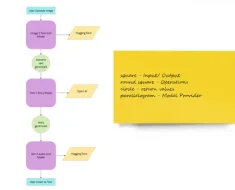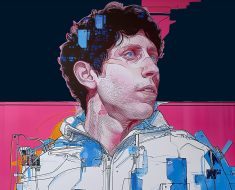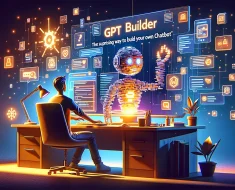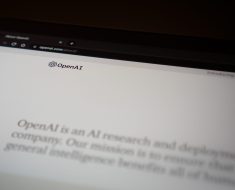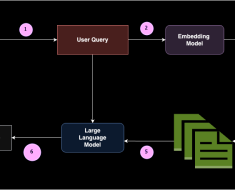Why AI Applications Matter
Ever wonder how your phone seems to know what you need before you even ask? That’s AI in action! AI applications are transforming our everyday lives, making everything from healthcare to navigation smoother and smarter. In this article, you’ll discover how AI applications work, the must-have apps that rely on AI, real-life examples of AI making a difference and frequency asked questions.
What are the Applications of AI?


AI applications are everywhere—some obvious, others hidden in the background, working to make our lives easier. Here’s a look at some of the most powerful ways AI is currently shaping various fields:
- Healthcare: AI acts like a “second set of eyes” for doctors, helping them spot health issues early by analyzing patient data and identifying risks. From diagnostics to patient care, AI supports healthcare professionals with faster and more accurate insights1.
- Finance: In finance, AI applications help detect fraud and manage risk. Banks often use AI to monitor transactions, alerting users to suspicious activity, and analyzing market trends to guide investment decisions2.
- Retail: AI in retail provides personalized shopping experiences by learning your preferences. For example, when you get tailored product suggestions on an e-commerce site, that’s AI at work behind the scenes3.
- Transportation: Self-driving cars are a leading example of AI’s impact on transportation. Companies like Tesla and Google are pioneering technology aimed at making roads safer and reducing human error4.
- Agriculture: AI is helping farmers monitor crops, manage resources, and predict yields more effectively. From AI-driven sensors to data analysis tools, it’s transforming agriculture into a more efficient and sustainable industry5.
What is the Best AI App Currently?
There are countless AI-powered apps out there, but some have become essentials for day-to-day use. Here are a few popular examples:
- Google Assistant and Siri: These virtual assistants help with everything from setting reminders to controlling smart home devices, showing how practical and accessible AI has become6.
- Grammarly: Grammarly acts as a personal editor, catching mistakes and improving writing style, helping everyone from students to professionals communicate more clearly7.
- MyFitnessPal: MyFitnessPal uses AI to support users in reaching their fitness goals by learning from daily activity and providing personalized recommendations8.
What’s the AI App Everyone is Using?
Some AI apps have become so popular, they’re almost household names:
- ChatGPT: OpenAI’s ChatGPT is a go-to for people seeking quick answers or assistance with work tasks. It’s widely used for its versatility in handling questions, language generation, and learning tasks9.
- Replika: Known for its unique, conversational AI, Replika acts as a friendly companion for users, especially those looking for a non-judgmental, supportive chat10.
Top 10 Ways AI Applications Are Used Today


AI applications are part of our daily routines, sometimes without us even noticing. Here are some common examples:
- Face Recognition: Unlocking your phone with your face.
- Email Filtering: Sorting spam from important messages.
- Navigation: Google Maps and Waze suggesting the best routes11.
- Social Media Feeds: Tailoring content to your interests.
- Streaming Recommendations: Netflix and Spotify suggesting what you might like.
- Smart Home Devices: Learning routines and adjusting settings.
- Personalized Shopping: E-commerce sites recommending products you’ll love.
- Healthcare Diagnostics: Supporting doctors in analyzing scans and reports.
- Finance Management: Assisting banks with credit analysis and fraud detection.
- Self-Driving Cars: Reducing the chance of human error on the road.
Why It Matters: How AI Applications Affect Us
AI isn’t just a trendy technology—it’s helping solve real problems and create new conveniences. From offering us personalized shopping experiences to making healthcare smarter and safer, AI applications are improving our quality of life. As AI continues to develop, we can expect even more helpful, accessible applications in the future.
Real-Life Examples of AI in Action
AI applications are so integrated into our routines that we often don’t even notice them. Here are some everyday ways AI quietly works to make our lives easier:
- Personalized Content: Netflix and Spotify suggest shows and music based on your previous choices, making it easier to discover new favorites.
- Navigation Assistance: Google Maps and Waze don’t just find routes; they adjust based on real-time traffic, helping you avoid delays11.
- Spam Filtering: Ever wondered why your inbox isn’t flooded with spam? AI filters are behind the scenes, learning from your preferences and adapting as spam tactics evolve.
- Social Media Algorithms: Facebook, Instagram, and others use AI to prioritize posts based on your interactions, keeping your feed more relevant12.
- Customer Support Bots: AI chatbots provide instant answers to basic questions on many websites, saving you time when you need quick support.
Frequently Asked Questions


2. Are AI applications safe to use?
For the most part, yes. AI applications, especially those from reputable companies, undergo rigorous testing for security and privacy. However, like any technology, it’s essential to be cautious, especially with data privacy settings.
3. How do AI recommendations work?
AI recommendations (such as Netflix or Amazon suggestions) are based on algorithms that analyze user behavior and preferences. The AI learns from what you watch, click on, or purchase, then uses that data to predict what you might enjoy next.
4. Will AI eventually replace human jobs?
AI may automate certain tasks, especially those that are repetitive or data-intensive, but it also creates new job opportunities. The key for the future is likely to be a blend where humans work alongside AI.
Wrapping Up: How Will AI Continue to Change Our Lives?
As AI evolves, we’re only beginning to see its potential. From personal assistants like Siri to complex systems in healthcare, AI applications are transforming how we interact with technology. The future of AI will bring more convenience and new solutions to everyday challenges, making it a powerful partner in our modern world.
Citations:
1. Google Cloud. “Applications of artificial intelligence (AI).” Accessed November 11, 2024.
2. Elegant Themes. “10 Best AI Apps for iPhone and Android in 2024.” Accessed November 11, 2024.
3. Simplilearn. “24 Cutting-Edge Artificial Intelligence Applications.” Accessed November 11, 2024.
4. ClaySys. “Examples of Artificial Intelligence in Everyday Life.” Accessed November 11, 2024.
5. Tableau. “Everyday examples and applications of artificial intelligence.” Accessed November 11, 2024.
6. TechTarget. “What is Siri?” Accessed November 11, 2024.
7. CyberLink. “12 Best Free AI Tools You Have to Try in 2024.” Accessed November 11, 2024.
8. BuiltIn. “32 Top Artificial Intelligence (AI) Apps.” Accessed November 11, 2024.
9. ZDNet. “What is ChatGPT? The world’s most popular AI chatbot.” Accessed November 11, 2024.
10. Replika. “What is Replika?” Accessed November 11, 2024.
11. Google Maps Help. “How Google Maps uses AI to predict traffic.” Accessed November 11, 2024.
12. Sprout Social. “Everything you need to know about social media algorithms.” Accessed November 11, 2024.
13. Apple Support. “About Siri Suggestions.” Accessed November 11, 2024.
Please note, that the author may have used some AI technology to create the content on this website. But please remember, this is a general disclaimer: the author can’t take the blame for any mistakes or missing info. All the content is aimed to be helpful and informative, but it’s provided ‘as is’ with no promises of being complete, accurate, or current. For more details and the full scope of this disclaimer, check out the disclaimer page on the website.

